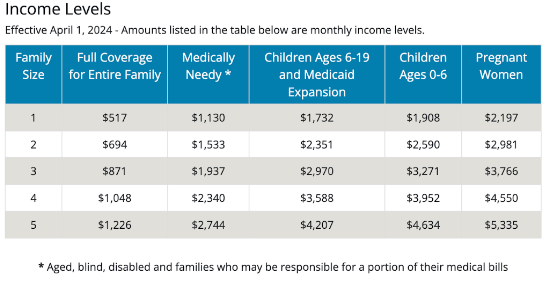A Chronically Ill Graduate Student’s Experience Losing Medicaid Expansion
It’s no secret that graduate school is expensive and graduate assistants are not paid very well compared to other workers with the same degrees. It’s one of the reasons why it is so hard for first-generation students, people with disabilities and people of color to get graduate degrees and enter academia. The hidden costs of graduate school make it the perfect environment to breed mental health problems.
This is my fourth year in a PhD program at NDSU, and my seventh year of graduate school overall. Monetary concerns have been one of my largest struggles as a person with chronic illness, mental illness and a family from a poor socio-economic background. I’ve tried to be creative in meeting my needs. I’ve attended many free events in hopes of food that meets my dietary needs. I’ve gone to food shelves. I’ve applied for food stamps and Medicaid. Still, I seem to barely break even each month.
I thought my monetary concerns would ease up once my graduate assistantship stipend was increased. Wow, was I wrong. Just a modest increase has practically cost me thousands of dollars this last year. While food stamps work on a sliding scale where you can receive more when you make less, and less when you make a bit more, Medicaid and Medicaid expansion work differently. There is a strict financial cut-off for whether or not someone is eligible for Medicaid or Medicaid expansion. Since the stipend increase, I officially make $156 over the limit for Medicaid expansion. I no longer qualify.
I never thought a stipend would cause me so much trouble. The increase to my salary was a little less than $200 per month during the school year. That stipend has brought me to the edge of poverty. With medicaid expansion, my medications, psychiatric appointments, physical therapy and unplanned trips to the emergency room for Colitis flare ups were all taken care of. After I lost it, I was told to apply for insurance through the healthcare marketplace online. The cheapest insurance I could find that covered a portion of my medications has a monthly premium of $160. It also doesn’t fully cover any of my appointments or medication until I reach my yearly deductible of $9000! Even though my medications are all generic, they cost almost $100 with each refill. My psychiatric and specialist appointments have had to go from every couple of months to only one or two times a year or during extreme emergencies. I’m afraid that next time I have a painful flare-up, I won’t be able to afford a trip to the emergency room for treatment.
Of course when I added up the monthly cost of my insurance premium, medication costs, and appointment fees, the cost was easily over $200 each month. It not only cancels out my stipend raise, it puts me at less money than when I wasn’t given the stipend increase! The whole process has taught me to be careful what you wish for. I still believe that getting healthcare through my employer would be super helpful even though the stipend increase put me in a bad place monetarily. I also know that the increase was probably helpful for the other graduate assistants in my position who didn’t have a disability or are international. I’m happy for them. I love being paid what one’s worth. I just wish what helped other people would be useful for me as someone with a chronic illness. Once again, my body has disabled me in more than just physical ways.
